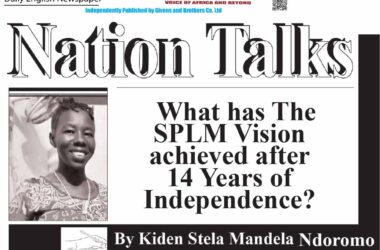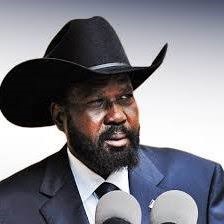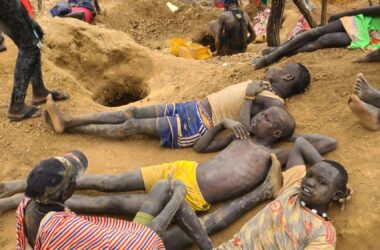By Philip Buda Ladu
Médecins Sans Frontières or Doctors Without Borders (MSF) has announced the forced closure of its vital hospital in Ulang County, Upper Nile State.
This follows a brazen armed looting incident at the facility, earlier Monday.
In a press statement extended to No.1 Citizen Daily Newspaper yesterday, MSF said dozens of armed men stormed the medical facility and MSF premises in Ulang town on the morning of April 14th, threatening staff and stealing vital medical supplies and equipment.
As a direct consequence of the attack, MSF has been forced to suspend all medical services at the hospital.
According to the medical charity organization, the Ulang facility was the only functioning health center in the area, leaving the local community without access to essential healthcare at a time of escalating violence and a current cholera outbreak.
“We are outraged by the attack on our hospital and the threats against our medical staff in Ulang,” stated.
Zakariya Mwatia, MSF Head of Mission in South Sudan. “This facility has been a lifeline for the community at a time of escalating violence and an active cholera outbreak” he emphasized.
Mwatia stressed that such attacks on hospitals and healthcare workers are completely unacceptable, stating “We are gravely concerned about the devastating impact the closure of medical services will have on already vulnerable communities, who now face even greater barriers to accessing lifesaving care.”
The situation preceding the attack saw patients, already under critical medical care, fleeing the hospital in fear on the night of April 13th as violence drew closer to Ulang town according to MSF.
At the time of the looting, over 100 patients were admitted, receiving crucial treatment for trauma, maternity needs, and paediatric illnesses.
While some patients initially remained, they were ultimately forced to leave as armed men systematically looted the facility room by room.
While MSF has reported no injuries to its staff, the organization remains deeply concerned for their safety and the well-being of former patients.
“The safety of our staff and patients is our foremost priority. We are taking all necessary measures to evacuate our teams as we fear further escalation of violence,” added Mwatia.
“This unacceptable act of violence shows a complete disregard for humanitarian principles and international humanitarian law, and it has directly affected our ability to provide care at a time when it is most urgently needed.”
In January 2025, armed men attacked two clearly marked MSF boats carrying six staff members who were returning to Ulang after delivering medical supplies to Nasir County Hospital. This previous incident had already forced MSF to suspend all outreach activities in the region.
MSF has been operating in Ulang since 2018, running a secondary healthcare hospital alongside a network of decentralized primary healthcare services.
In 2024 alone, MSF said their teams provided over 10,000 outpatient consultations, admitted 3,284 patients for inpatient care, and assisted with 650 maternal deliveries.
The 60-bed hospital has been a vital resource for communities grappling with violence, disease outbreaks, and limited access to healthcare.
The suspension of services at the Ulang hospital has created a critical healthcare void in the area, leaving it without any functioning medical facilities. This disruption also means the cessation of crucial support provided by MSF to several primary healthcare centers across the region, halting vital efforts to treat cholera patients and control the ongoing outbreak.
Furthermore, over 800 patients living with HIV, TB, and other chronic diseases have now lost access to their essential treatment, placing their lives at significant risk, Doctors with Borders noted.
MSF however said it continues its support for health services in other parts of Upper Nile, including Renk and Malakal counties.
The organization urgently calls on all parties to the conflict to respect and protect health facilities, patients, civilians, and medical staff, in accordance with international humanitarian law.
“MSF remains committed to providing impartial, lifesaving care wherever it is needed, but the safety of patients and health workers must be guaranteed,” emphasized Mwatia.



